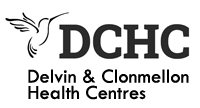Contraception
Below are some methods of contraception. Other methods of contraception are available. Just Book an appointment to find out more.
Intrauterine device (IUD)
What is it?
Also known as a coil – an IUD is a small plastic and copper device, usually shaped like a ‘T’, which is fitted into the uterus by a doctor using a simple procedure. It works by preventing an egg from settling in the womb.
Advantages:
- Works as soon as it is put in and stays in place for 3-10 years but can be taken out at any time
- May be used as emergency contraception if fitted up to five days after sex
- Not affected by any other medicines
- Does not interfere with the spontaneity of sex
- There are no hormones involved so will not effect levels of fertility
- If fitted in women over 40 it can stay in place until after the menopause
Considerations:
- May cause heavier or more painful periods
- Small chance of infection during first few weeks after insertion
- Does not protect against sexually transmitted infections
Effectiveness: It is 98% – 99% effective
Combined pill
What is it?
One of the most popular forms of contraception. It contains two hormones – oestrogen and progestogen – which prevent an egg from being released from a woman’s ovary each month.
Advantages:
- May help regulate periods
- May reduce pre-menstrual syndrome (PMS) and period pain
- Does not interfere with the spontaneity of sex
- Normal levels of fertility will return once the pill is stopped
- May offer some protection against cancer of the uterus and ovaries
Considerations:
- Not always suitable for women over 35 who smoke or are overweight
- Vomiting, diarrhoea and taking antibiotics can affect reliability
- May experience side effects such as nausea, headaches and weight gain
- Does not protect against sexually transmitted infections
Effectiveness: When used correctly it is over 99% effective
Contraceptive injection
What is it?
An injection of the hormone progesterone which provides a longer acting alternative to the contraceptive pill (each injection lasts for 12 weeks). It works by slowly releasing the hormone progestogen into the body to stop ovulation and thickens cervical mucus which prevents sperm from reaching an egg. It also thins the lining of the womb to prevent an egg implanting.
Advantages:
- Don’t have to remember to take a pill every day
- May make periods lighter and less painful
- Not affected by any other medicines
- Does not interfere with the spontaneity of sex
- May offer some protection against cancer of the uterus
Considerations:
- May make periods irregular
- May take up to a year for fertility to return to its normal level
- Need to remember to attend appointments every 12 weeks for a further injection
- Possible side effects include weight gain, headaches, mood changes and breast tenderness. Side effects will continue for as long as the injection lasts
- Does not protect against sexually transmitted infections
|
Cervical Smears
CervicalCheck -The National Cervical Screening Programme provides free smear tests to women aged 25 to 60. A smear test is a simple procedure that only takes minutes and is the most effective way to detect changes in the cells of the cervix.
For more information please go to cervical check.ie
Antenatal Care
The Maternity and Infant Care Scheme provides an agreed programme of care to all expectant mothers who are ordinarily resident in Ireland. This service is provided by a family doctor (GP) of your choice and a hospital obstetrician. You are entitled to this service even if you do not have a medical card.
The Scheme also provides for two post-natal visits to the general practitioner.
The combined medical services are provided by your family doctor (GP) and a hospital obstetrician.
The GP provides an initial examination, if possible before 12 weeks, and a further 6 examinations during the pregnancy, which are alternated with visits to the maternity unit/hospital. The schedule of visits may be changed by your GP and/or hospital obstetrician, depending on your individual situation.
If you have a significant illness, e.g. diabetes or hypertension, you may have up to 5 additional visits to the GP.
Care for other illnesses which you may have at this time, but which are not related to your pregnancy is not covered by the Scheme.
After the birth, the GP will examine the baby at 2 weeks and both mother and baby at 6 weeks.
The mother is entitled to free in-patient and out-patient public hospital services in respect of the pregnancy and the birth and is not liable for any of the hospital charges.
Useful links
www.babycentre.co.uk
Well Woman Health Screening
With today’s busy lifestyles, finding time to visit the doctor can often be difficult, but it is important not to forget about your health. Medical check ups don’t take long.
They have proved to be highly effective and in some cases early screening has literally saved lives. More and more women are recognising the importance of an annual health check which can pick up indications of any problems at the earliest opportunity.
What does a women’s health check include?
Our Well Woman health screening is designed to spot the warning signs of high blood pressure, cholesterol,–
The service we offer includes:
- Medical history
- Blood pressure and weight check
- Breast examination
- Urine analysis
- Cholesterol blood test
- Time to talk
Additional tests can easily be added as required |
